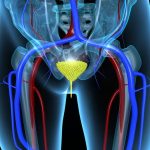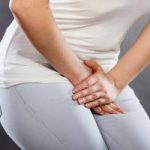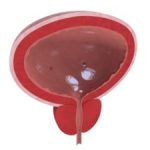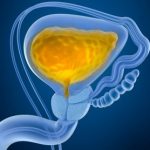 November bladder health month is a time when all efforts are focused on educating and empowering people about bladder health conditions. We at Bel Marra recognize the need to spread knowledge and information on this topic, so we have compiled a list of our best articles on the subject. You will find information on bladder polyps, bladder stones, and neurogenic bladder. We have also included information on bladder infection prevention as well the components of an overactive bladder diet.
November bladder health month is a time when all efforts are focused on educating and empowering people about bladder health conditions. We at Bel Marra recognize the need to spread knowledge and information on this topic, so we have compiled a list of our best articles on the subject. You will find information on bladder polyps, bladder stones, and neurogenic bladder. We have also included information on bladder infection prevention as well the components of an overactive bladder diet.
Overactive bladder diet: Foods and drinks to manage bladder health
As studies have shown, those who suffer from overactive bladder (OAB) can manage their bladder health with diet adjustments. While it does take a little planning, it can bring many OAB sufferers a lot of relief.
Advertisement
Overactive bladder is best described as a bladder problem that leads to the sudden urge to urinate or the need to urinate frequently throughout the day and night. While the volume of fluid intake can have an impact on this condition, there seems to be a lot of personal testimony suggesting the type of fluid and the kind of foods that are consumed play a very big role in the symptom flare-ups. Continue reading…
 Neurogenic bladder in elderly: Causes, symptoms, and treatment
Neurogenic bladder in elderly: Causes, symptoms, and treatment
Neurogenic bladder is a condition in which the signal that brain sends to the bladder telling it needs to urinate is not sent. When a healthy bladder becomes full, muscles contract and release, and the brain regulates this muscle activity. Damage to the nerves linking the bladder and the brain is the main cause of neurogenic bladder.
This is a problematic condition because it increases the risk of infection, bladder stones, and urinary incontinence. The good news is, patients can seek out treatment for neurogenic bladder to help them get back in control. Continue reading…
 Prevent bladder infection: Natural ways and lifestyle tips to boost bladder health
Prevent bladder infection: Natural ways and lifestyle tips to boost bladder health
A bladder infection is an extremely uncomfortable condition that can affect the lower urinary tract, and more than 50 percent of all women will suffer from at least one bladder infection at some point in their life. The traditional treatment method for bladder infections is a course of antibiotics; however, taking antibiotics can cause a range of other unwanted health problems, including a higher risk of contracting other infections.
The following natural remedies can help to encourage bladder health, reduce the risk of bladder infection, and if your infection is caught early enough, may also help to treat your bladder infection without the need for antibiotics. Continue reading…
 Bladder stones: Diet tips, treatment, prevention, and natural remedies
Bladder stones: Diet tips, treatment, prevention, and natural remedies
Bladder stones—not to be confused with kidney stones—are formed when minerals inside the bladder lump together and harden. This happens when the bladder doesn’t fully empty itself.
Advertisement
For many, bladder stones may be symptomless. If small enough, they can easily be passed when urinating. But in some cases, you may experience symptoms like pain, difficulty urinating, increased urination, and visual changes in your urine.
The good news is that bladder stones can be prevented through natural means and home remedies. Diet plays a large role in bladder stone development and prevention. Here are some tips and home remedies to help you ward off and treat bladder stones. Continue reading…
 Are bladder polyps cancerous? Causes, symptoms, and treatment
Are bladder polyps cancerous? Causes, symptoms, and treatment
A polyp is an abnormal growth of tissue projecting from a mucous membrane. Bladder polyps, in particular, are becoming more of an issue for medical professionals. Polyps in the bladder are suspected to be associated with lifestyle choices such as smoking or exposure to harmful chemical elements, but the cause of bladder polyps is not known. A certain parasitic infection called schistosomiasis has been discovered to be associated with the development of bladder polyps, which result from parasitic eggs released into the bladder wall tissue, leading to polyp formation. Men are afflicted more often by bladder polyps, generally being diagnosed after the age of 55. Continue reading…
